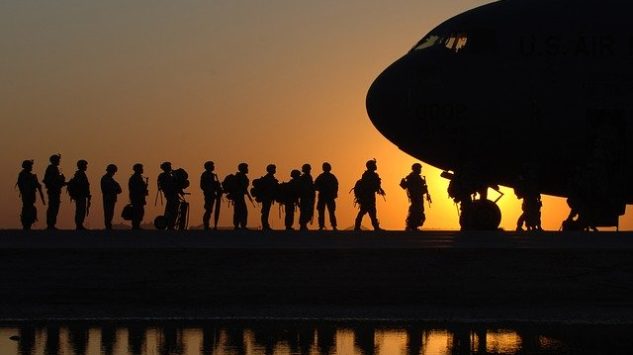Issue Briefs

War With Iran?
January 10th 2020
By Paolo Von Schirach
WASHINGTON – The killing of General Qassem Soleimani, the legendary head of the Iranian al Quds force, is a game changer in America’s creeping hostilities with Iran. I wrote recently that unless the US wants to engage in a conflict over Iraq, this poor, war-torn country is lost to us, on account of the solid Iranian grip on it. Large pro-Iranian Iraqi Shia military forces and pro-Iran Iraqi political parties make it almost impossible –short of an all out war– to dislodge the Iranians from what is now their vassal state.
Iraq is still lost
The killing of Soleimani changes nothing in this regard. If anything, it will lead to a formal request on the part of the Iraqis that all US forces currently in Iraq, supposedly to guard against any possible ISIL come back, leave immediately. I am not quite sure how this major political crisis with Iraq can be handled by Washington so that it will have a smooth end. Highly unlikely. Forget about working with any Iraqi government on anything at all.
Escalation with Iran
Regarding Iran, with this sensational assassination of the leader of all Iranian terror forces, now Washington has escalated the conflict with Tehran. The loss of Soleimani, a cult figure in Iran, stings badly. Iran will have to do “something” in response to this humiliation, possibly something very big. And this will inevitably cause a US retaliation.
Prior to the killing of Soleimani, notwithstanding countless Iranian provocations, President Trump repeatedly indicated that the US does not want “war” with Iran. But as of now, with this assassination of a key Revolutionary Guard leader, arguably the US is at war with Iran. An undeclared war; but war nonetheless.
Is Washington ready?
And this presents significant challenges for Washington. America is not very good at fighting unconventional conflicts in which our wily adversaries engage in asymmetric warfare. We are rarely proactive, hitting our opponents before they hit us, this way putting them on the defensive.
We are usually waiting for the next hit, whenever our adversary chooses to strike, and then do our best to retaliate. Which means that the other side, the bad guys, always retain the initiative.
The killing of Soleimani represents a major change. For sure the Iranians did not expect this, as they are used to moving around in contested territories with impunity. Does this mean that the US has now taken the initiative? Is America planning more strikes? Not clear at this early stage.
Big question
While the situation is still quite fluid, if we try to piece what we know together, here is the big question. “Is President Trump, in this critical 2020 election year, willing to engage in an undeclared war of attrition with Iran which will inevitably entail more terror attacks, possible disruption of oil flows in the Strait of Hormuz, strikes against Israel, and a lot more?”
Can Trump convince America that he has a good plan?
In other words, is America ready to absorb the blows that will inevitably come from Iran and its proxies, and forcefully retaliate in kind, whatever it takes, for as long as it takes? Furthermore, can the Trump administration present a credible “plan” that includes a clear path to something looking like “victory” against Iran?
Until yesterday, the plan was to exert maximum pressure against Tehran via economic sanctions, hoping that the significant pain inflicted by the sanctions would convince the Iranians to come back to the negotiating table and agree to whatever Washington demands.
Now it is different. After this assassination of a key Iranian military leader, forget about negotiating anything with Tehran. This being the case –open ended hostilities with Iran– if we continue with this tough stand against the Ayatollah’s regime, how is US public opinion going to react to all this? Will this escalation with Iran help Trump get reelected?
The views and opinions expressed in this issue brief are those of the author.
 |
Paolo von Schirach is the Editor of the Schirach Report www.SchirachReport.com He is also the President of the Global Policy Institute, a Washington DC think tank www.globalpi.org and Chair of Political Science and International Relations at Bay Atlantic University, also in Washington, DC www.bau.edu |